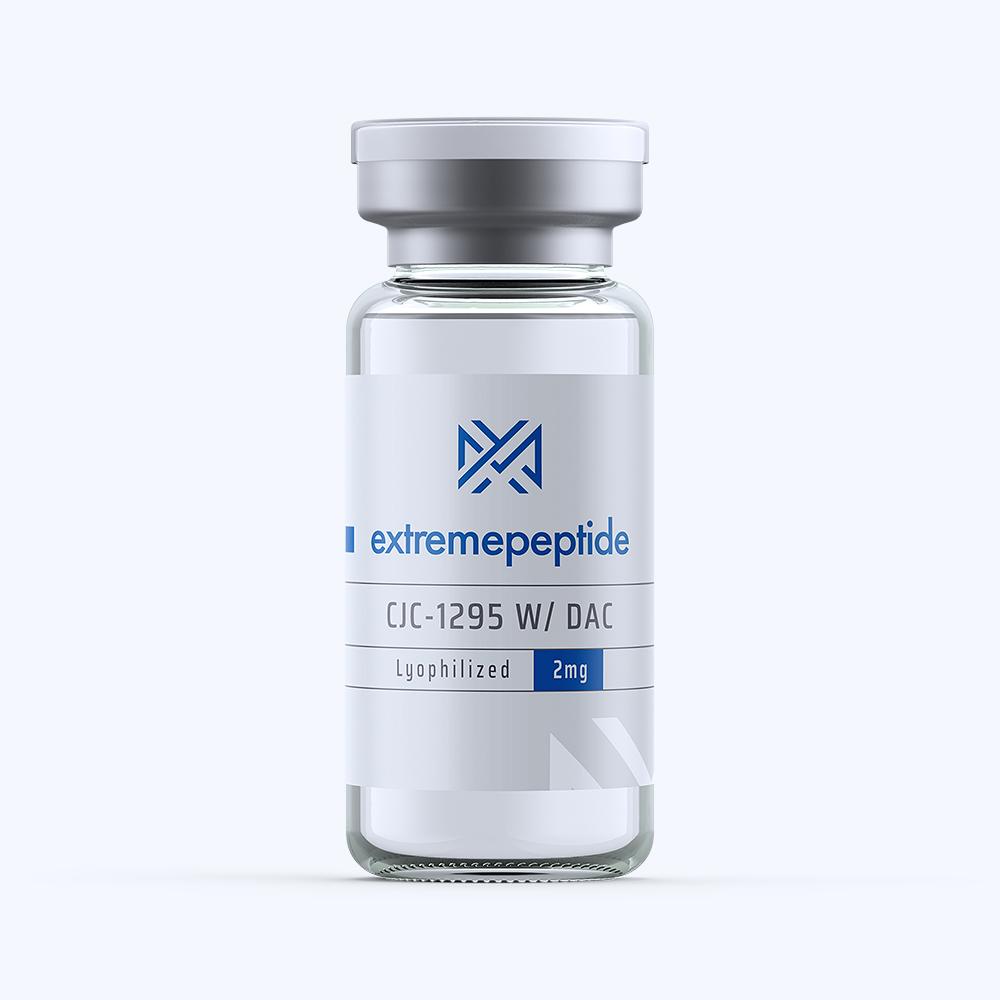The tetrasubstitued peptide CJC 1295 with DAC has a molecular formula of C152H252N44O42, and a molecular weight of 3368.7. Its structural integrity is composed of 30 amino acids. Its overall functionality has been marked by its ability to bioconjugate with the globular protein serum albumin, which in turn leads to an advanced level of homeostasis within an animal test subject.
The Interactions with CJC 1295 with DAC
According to scientific study that has been based on animal test subjects, it has been determined that CJC 1295 with DAC’s inherent functionality hinges on its interaction with two specific components that are found within an animal test subject’s body:
- GHRH1-29 – this peptide chain is responsible for regulating the activity of the growth hormone axis of an animal test subject. Its release is part of a process referred to as a negative feedback loop.
- DPP-IV – Otherwise known as dipeptidyl amino peptidase IV, this antigenic enzyme is chiefly associated with processes related to immune system regulation, programmed cellular death, and signal transduction. Its process has been shown to cause GHRH1-29 to experience a rapid half-life that lasts under seven minutes.
It has been shown through scientific study on animal test subjects that CJC 1295 with DAC essentially quells the production of DPP-IV from happening. This in turn enables it to allow GHRH1-29 to experience a dramatic increase in its half-life; one that allows it to last over seven days. This elevated stabilization causes the growth hormone axis to experience a greater level of operation, thus enabling an animal test subject to experience a greater level of homeostasis.
Additionally, scientific study based on animal test subjects has determined that CJC 1295 with DAC’s functionality allows it to block methionine oxidation. This is important to note because this process is considered to be a key factor in contributing to an animal test subject’s aging process.
CJC 1295 with DAC and Elevated Processes
Because it has been shown that CJC 1295 with DAC has the ability to extend the stability and half-life of GHRH1-29 and block the production of DPP-IV, scientific study that has been conducted on animal test subjects has determined that its presence could be at the root of several elevated processes that a test subject may be able to experience.
The biggest of these elevated process ties to an overall elevation in protein synthesis. Because CJC 1295 with DAC’s functionality essentially causes a greater capacity of function for an animal test subject’s growth hormone axis, it has been determined that the test subject could process a greater amount of proteins over a longer period of time. This extended process is thought to be a vital component of allowing an animal test subject to maintain an elevated state of homeostasis. Most of the other benefits that have been built around it via scientific study on animal test subject all trace back to this overarching process.
- For example, this boost in protein synthesis has allowed scientific study based on animal test subjects to determine that it can increase the rate at which muscular tissue can be grown. Because of the proliferation of proteins as brought about by protein synthesis, it has been determined that an animal test subject can experience an uptick in the level of muscle size and muscle mass over time.
- The added level of protein synthesis has been thought to play a vital role in boosting bone density. Specifically, research based on animal test subjects has noted that the boost can cause a bone’s mineral matter per square centimeter to increase. This then makes the bones of an animal test subject to be stronger and less vulnerable to breaks, fractures, and other bone-related injuries.
- The increase has also been shown to potentially play a key role in the reduction of adipose tissue; that is, body fat. The overall mechanics of CJC 1295 with DAC has been shown to promote lipolysis; the process in which the lipids that eventually form body fat are broken down. This accelerated degradation of lipids in turn enables the level of body fat to decrease.
It has also been thought that the elevation in protein synthesis can lead to a boosted amount of deep sleep. The reasoning here is based on the determination that an animal test subject’s peak time of activity related to protein synthesis occurs during deep sleep. As such, it is thought that the boost in protein synthesis can cause an elevated amount of deep sleep as a means of compensation.
Any findings or observations relating to CJC 1295 with DAC should exclusively be the product of study performed in a strictly contained environment.

